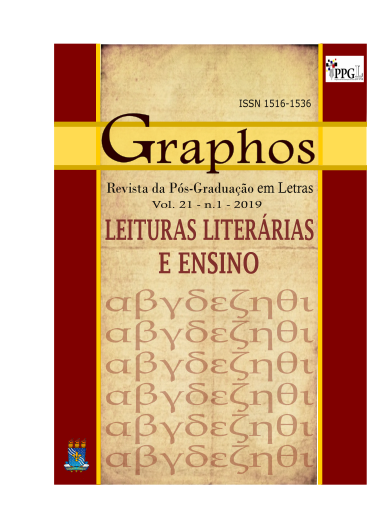Literature schooling: a look at school practices
Keywords:
s literature, Schooling, School Practices, ReadingAbstract
This paper problematizes research data carried out with the objective of discussing schooling
of different genres of texts used in fifth and sixth years of elementary school (ROSSI, 2010), as observed
in public-school teachers’ practices. Discussions are anchored on schooling of fables and a literary
chronicle, departing from the concept of schooling itself, going through the problematization of the term
schooling of literature to, finally, approach classroom practices. Discussion of the concepts of schooling
and schooling of literature are based on Soares (2003, 2006), Saraiva (2001) Arena (2010), Zilbermann
(1987) and Miguez (2003) and Batista (2004). Schooling is here understood as the result of the
submission of a certain knowledge to school teaching. Literature schooling is understood as Miguez
(2003), who argues that reading of literature should not be understood and manipulated as a school task,
but as an aesthetic experience that manifests itself in the pleasure of seeing, reading and discovering the
world through literature. Results show what Soares considers inadequate schooling of literature by the
school, when reading is neither directed to the expression resources used nor to the perception of the
aesthetic use of the language nor to the comprehension of the world view and the context in which they
are inserted.
Downloads
References
ARENA. A literatura infantil como produção cultural e como instrumento de iniciação da criança no mundo da cultura escrita. In: SOUZA, R. J. de (Org.). Ler e compreender: estratégias de leitura. Campinas, Mercado de Letras, 2010, p. 13-44.
BATISTA, Antônio Augusto Gomes. O texto Escolar: uma história. Belo Horizonte: Autêntica, 2004.
BORTONI-RICARDO, Stella Maris. Nós cheguemu na escola, e agora? São Paulo, Parábola, 2005.
CANDIDO, Antonio. Vários Escritos. São Paulo/Rio de Janeiro: Duas Cidades/Ouro Sobre Azul, 2004.
DELL ISOLA. Regina Lúcia P. Leitura: inferência e contexto sócio-cultural. Belo Horizonte: FALE/UFMG, 1991.
KLEIMAN, ÂNGELA (org). A Formação do Professor: Perspectivas da Linguística Aplicada. Campinas, SP: Mercado de letras, 2001.
MARCUSCHI, Luiz A. Compreensão de texto: algumas reflexões. In. DIONÍSIO, Ângela Paiva e BEZERRA, Maria Auxiliadora (org). O Livro didático de Português: múltiplos olhares. Rio de janeiro: Lucerna, 2005.
MIGUEZ, Fátima. Nas Arte-Manhas do Imaginário Infantil: O lugar da Literatura na Sala de Aula. Rio de Janeiro: Editora Zeus, 2003.
ROSSI, Maria Aparecida Lopes. O processo de escolarização dos diferentes gêneros textuais observado nas práticas de ensino de leitura. 2010. 249 f. Tese. Faculdade de Educação, Universidade de Brasília, Brasília, 2010.
SARAIVA, Juracy Assmann (org). Literatura e Alfabetização: do plano do choro ao plano da ação. Porto Alegre: Artmed Editora, 2001.
SOARES, Magda. Letramento e escolarização. In: RIBEIRO, Vera Masagão (org). Letramento no Brasil. São Paulo:Global,2003.
_____. A Escolarização da Literatura Infantil e Juvenil. In EVANGELISTA. Aracy A.M.
BRANDÃO, Heliana M. B. e VERSIANI. Zélia M (orgs). A escolarização da Leitura Literária: O jogo do livro infantil e Juvenil. 2ª ed. Belo Horizonte: Autêntica, 2006.
ZILBERMAN, Regina. A Literatura Infantil na Escola. São Paulo: Global Ed., 6ªed. 1987.







